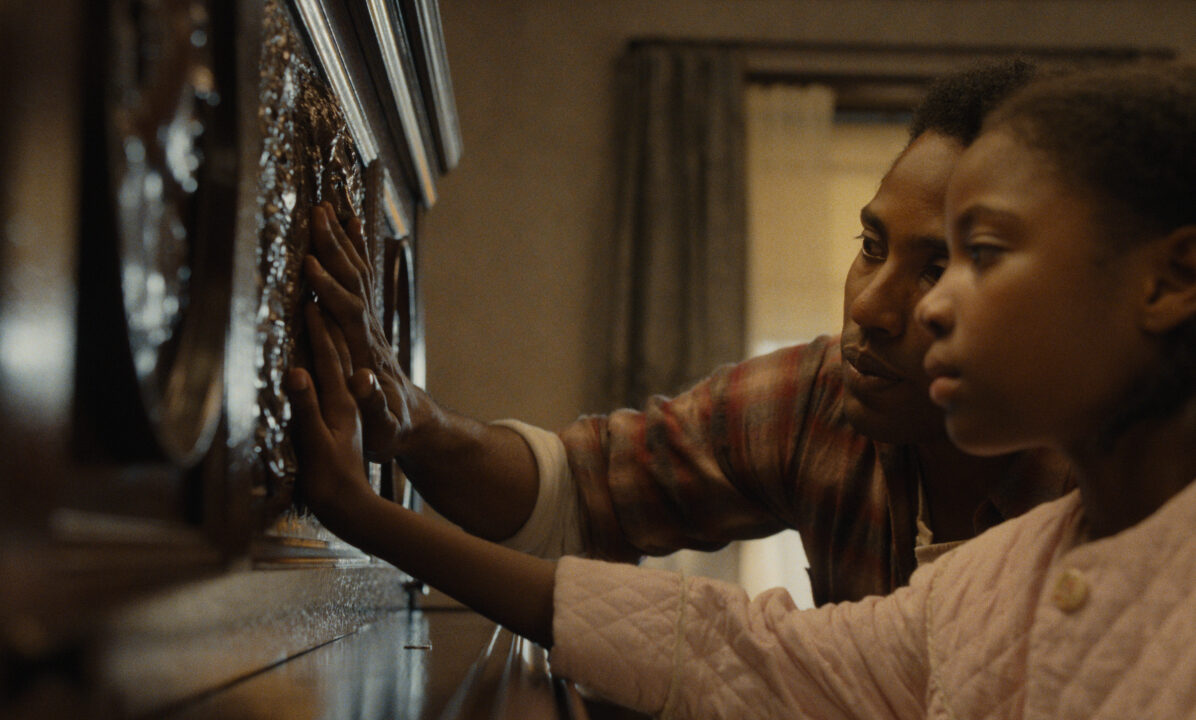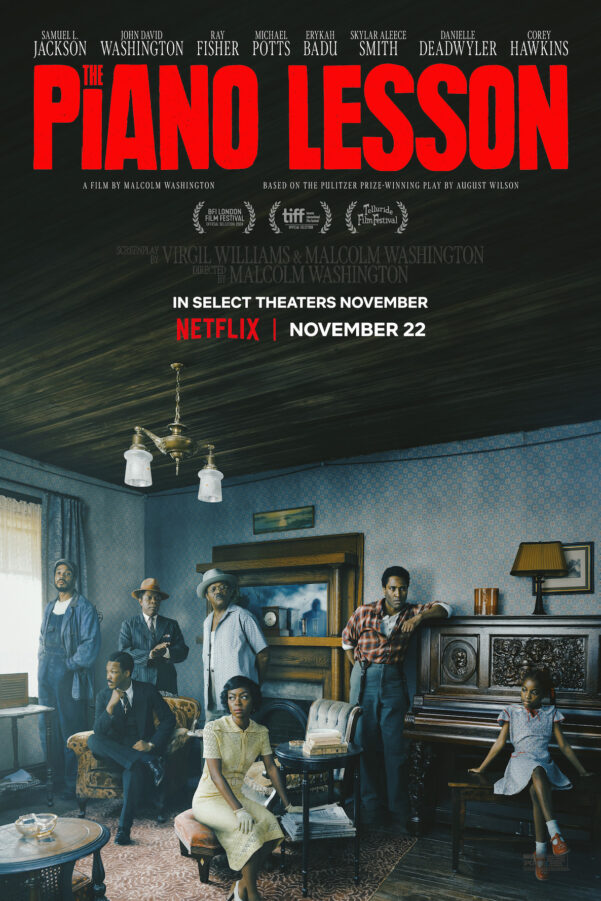The Piano Lesson

Boy Willie Charles is both a troublemaker and smooth talker, a braggart kept afloat on waves of self-belief alone. However, closer inspection reveals a man so desperate for a semblance of control he can scarcely contain it, quicker to grandiloquent fits of temper the more he doesn’t have his way. Upon the 1987 Broadway premiere of August Wilson’s The Piano Lesson, the role was played by one Samuel L Jackson, a then-unknown actor already playing to his motormouthed strengths. The most surprising (and most surprisingly affecting) thing about Netflix’s new stage-to-screen transfer, then, is the presence of Jackson in mellowed, advanced years. Quite improbably, he fills the least showy part on offer, playing near-passive peacemaker to the ongoing turf war of siblings Boy Willie (John David Washington) and Berniece (Danielle Deadwyler), and doing so with welcome, warm restraint.
Returning to the household of his uncle Doaker (Jackson), the boy has designs on selling the family’s grand piano in order to obtain the land where his ancestors once toiled as slaves. However, his unstoppable force meets an immovable object in his sister, who refuses to part with the piano on account of the traumatic family history quite literally engraved into its woodwork. Thus, much of the dramatic fireworks fall instead to this central, combative duo. For his part, Washington’s bluster appears more than ever before to be channelling his father (the whole film is a family affair, helmed by the actor’s sibling Malcolm Washington), while Deadwyler is all tightly wound anxiety turned explosive fury. Commanding as they both are, their confrontations can also lead The Piano Lesson into much the same troubled waters as most any stage adaptation: after a time, it can feel simply like we are wandering from one screaming match to another, whilst hardly ever vacating the same living room, kitchen and occasional porch.
It’s not for lack of trying on the part of director Washington and DP Mike Gioulakis (It Follows, Us), both striving admirably to infuse some gothic horror grandeur into a house whose ghosts are quite literal. The operatic pyrotechnics of The Piano Lesson’s climax can’t help but impress, but the material remains stubbornly, unyieldingly un-cinematic in spite of this. People come and go from the premises, among them a flamboyant preacher (Corey Hawkins), Boy Willie’s co-conspirator Lymon (Ray Fisher, whose softly spoken, watchful performance draws the eye away from showier turns) and sad, drunken Wining Boy (Michael Potts). Oftentimes, they will have whole stories to tell before being on their way, sometimes their stories may even be illustrated through extensive flashbacks (intended as a fissure in the film’s stagy straitjacket, they do not convince). Still, with performances often pitched to the rafters, one can never shake the feeling that the screen is separating us from the hot-blooded emotional truth of their stories.
Even with a treatment as comparatively ambitious as this one (next to George C Wolfe’s Ma Rainey’s Black Bottom, this is a sweeping epic), the project’s limitations cannot help but reveal themselves. In theory, the film adaptation ought to both expand and magnify, bestowing a widescreen vista and intimate close-ups on a story begun with neither. In execution, we are simply distanced, the artificiality of the drama’s construction laid bare.
For all its attempts to liberate itself, this sturdy drama feels awkwardly transplanted from its natural setting.
Thomas Messner
The Piano Lesson is released in UK Cinemas on 8th November and on 22nd November on Netflix.
Watch the trailer for The Piano Lesson here:

























Facebook
Twitter
Instagram
YouTube
RSS